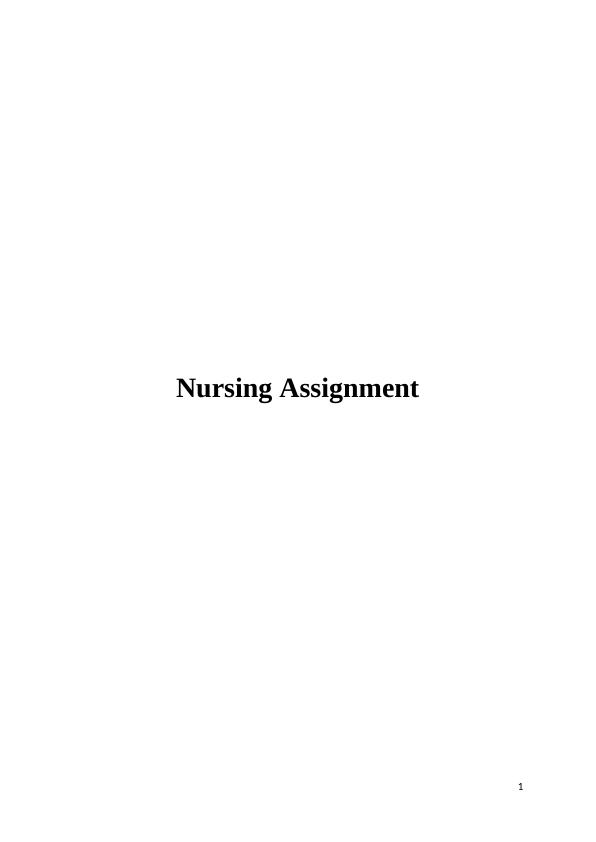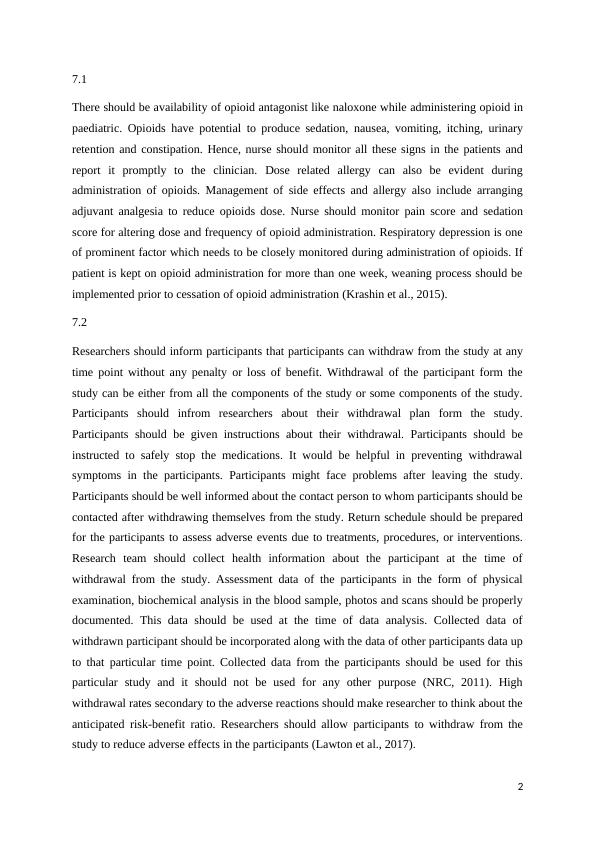Management of Side Effects and Allergies During Administration of Opioids in Pediatric
5 Pages1175 Words486 Views
Added on 2020-04-01
About This Document
If patient is kept on opioid administration for more than one week, weaning process should be implemented prior to cessation of opioid administration (Krashin et al., 2015). 7.2 Researchers should inform participants that participants can withdraw from the study at any time point without any penalty or loss of benefit. Researchers should allow participants to withdraw from the study to reduce adverse effects in the participants (Lawton et al., 2017).
Management of Side Effects and Allergies During Administration of Opioids in Pediatric
Added on 2020-04-01
ShareRelated Documents
End of preview
Want to access all the pages? Upload your documents or become a member.
Debriefing Form A Transformation in the Aviation Industry
|3
|371
|386
Plain Language Information Statement for Functional Analyzes of Campaign Management in Saralrozgar
|4
|1569
|493
Journal Critique on Nurses' Perspectives and Experiences on Medication Safety Practices
|8
|1916
|325
The Effect of Nurse Empowerment Educational Program on Patient Safety Culture: A Randomized Controlled Trial
|8
|6867
|79
Assignment | Situational Influences on Exam Performance
|7
|1577
|595
Research Methodology Assignment
|21
|4343
|39


